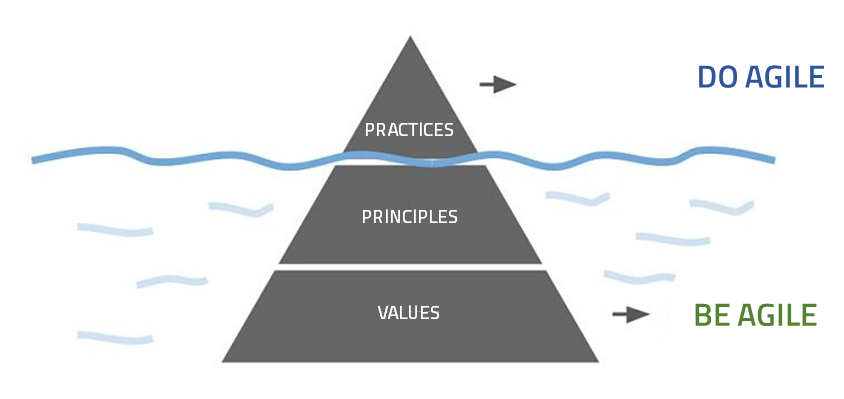It would seem that in the past few months companies have finally become aware of the importance of culture as a fundamental pillar in their digital transformation process.
The problem is that this interest in culture has come in the form of a ‘teenage fashion trend’. Apparently all companies today have to embrace agilism and create tribes, even if they do not know full well what it is all about or understand the real impact this change will have.
Big companies are ardently devoted to practices, those miraculous remedies that can transform a company quickly and painlessly. These remedies are based on the same magical compound that makes cellulite-fighting creams, abdominal appliances and hair growth tonics work. The passion for shoehorning tribes and squads into companies stems from this school of thought.

It is mindboggling that we have not realized yet that such practices have a clear purpose behind them, and that practices that work in one environment will not necessary work in another one.
The Spotify model, for example, was created from scratch, on a trial and error basis, by a product company having specific needs. Spotify has been making decisions over time, such as using the name ‘squad’ instead of ‘scrum team’.
The term ‘squad’ stresses that teams are completely autonomous to decide between Scrum and Kanban. In addition, these squads have plenty of leeway when it comes to choosing tools and technologies and do not stick to common conventions too closely.
In most Spanish companies the context is very different from Spotify’s. They do not want teams to have that much freedom and prefer to establish both the methodology and the tools, technologies, and so forth in a more rigid way. This is so in order for teams to work in a more homogeneous manner.
Nevertheless, they still use the word squad because they do not understand either the logic behind Spotify’s decisions or the context in which they were made.
But the actual main problem is not that companies are copying the Spotify model in a context where it does not apply. There is an even more serious issue behind all this: Companies do not even need an organisational change when they are still at an early stage of maturity in terms of agilism and culture.
They simply do it because it is trendy, but have they even stopped to think about why would they need an organizational change?
If we do not understand the purpose behind all these changes, we will never make them correctly.

An organizational change must stem from an objective and begin with a change in people's mentality that goes hand in hand with a change in the leadership model.
Once we have internalized these principles, we can move on to practices, applying them iteratively and incrementally in small groups before introducing them in the entire company.
However, this is always done the wrong way around. Companies jump directly to practices without first changing their mentality because they think they are going to save time. And they repeatedly make the same mistake:
- A traditional department head will continue acting in an authoritarian manner if there is no change in the leadership model and no change in the operational processes – even if their department is now called a tribe.
- A work team is not going to stop reporting to a project manager at a daily meeting just because the manager is now called a Scrum Master or because there is a special room for daily meetings.
- A traditional project plan is not going to turn into a product backlog just because it is posted on a wall using sticky notes.
- An army of agile coaches cannot transform a company on its own without a plan with goals and monitoring KPIs.
And thus a long list of practices that are useless without the right degree of maturity that companies need to have in order to be able to implement them.
Spotify did not come up with its model by copying it from another company; it built it from scratch to rectify its particular situation. And it did it after years of working with Agile, on the foundations of a deeply rooted digital culture.
Every company needs to forge its own path, and I firmly believe that organizational change should not be among the first steps that are taken.
Companies should copy Spotify’s culture rather than its organisational model. Copying the latter is nothing more than ‘makeup’. It is a new chassis for an old car whose engine keeps on breaking down.
Companies stay away from cultural changes at all costs because they take time. They want a quick fix, as cheap and painless as possible. But a new bodywork and paint job does not make a car run better, just as an abdominator will not flatten your belly if you do not use it 3 times a week and stop eating scones too.
Because if we start with the What (the practices) before understanding the Why (the principles), we will end up getting frustrated and fighting the change.
Comments are moderated and will only be visible if they add to the discussion in a constructive way. If you disagree with a point, please, be polite.





Tell us what you think.